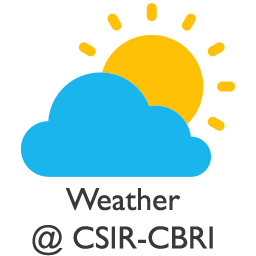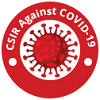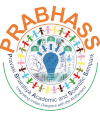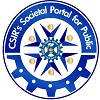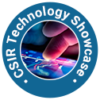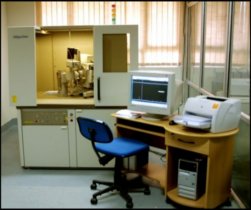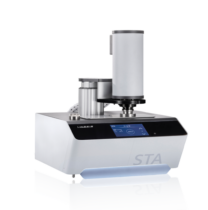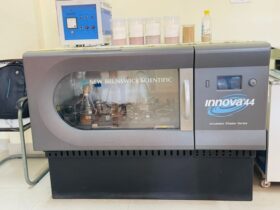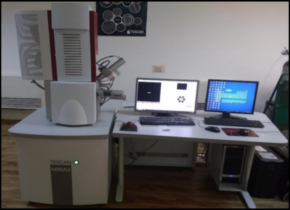
Environmental Science and Technology (EST) Division is engaged in R&D work on the development of process technologies for the manufacture of cementitious products from agro-industrial wastes such as rice husk, fly ash, blast furnace slag, in phosphogypusm and lime sludges. Emphasis is laid on environmental pollution control in process industries related to building materials, such as cement, lime, bricks and pest management in buildings.
R&D HIGHLIGHTS
Cement Products
- Masonry cements and other cementitious binders from agro-industrial wastes
- Low temperature cement using mineralizers
- Portland-pozzolana cement
- Portland slag cement
- Super-sulphated cement
- Rice husk ash cement
- Pollution control system for lime kilns
Gypsum Products
- Fibrous Gypsum Plaster Boards
- Water – resistant Gypsum Binder
- Gypsum Blocks
- Multiphase Plaster
- Anhydrite cement
- Gypsum Tiles
Pollution Monitoring
- Ambient Air Quality Monitoring
- River, Lake and ground water quality monitoring for organic and inorganic pollution.
- Land/Soil Pollution studies
- Industrial Effluents and solid waste characterization
- Work place environment monitoring.
Waste Management
- Waste management services mainly include inventorization, characterization, and reuse; recycle feasibility study and evaluation of appropriate treatment technology.
ENVIRONMENTAL STUDIES & SERVICES OFFERED
- Air Pollution Monitoring & Control
- Water Quality Monitoring, Water Supply and Resource Management
- Waste Disposal, Refuse and Recycling
- Environmental Impact Assessment & Environmental Management Plan (EMP) for proposed and expansion projects of process Industries and Infrastructural projects
- Environmental Audit of building material industries
- Environmental planning for problem areas
- Engineering Design and Impact Assessment of hazardous waste disposal facilities
- Computer Modeling of surface water, ground water, Ambient Air and Indoor Air Quality
BUILDING PEST MANAGEMENT
- Evaluation of agrochemicals (pesticides & insecticide) as termiticide for building
- Studies on herbal extractives for termite/pest management
- Termite resistance testing of plastics, foam, wood substitutes, herbal & synthetic products
- Studies on inorganic materials as physical barriers for termite management
- Termite & cockroach culture, etc.
INFRASTRUCTURAL & TESTING FACILITIES
- Atomic absorption spectrophotometer
- Infra-red spectrophotometer
- UV and visible spectrophotometer
- Ion chromatograph
- Ion selective analyzer
- High volume samplers
- Stack monitors
- Velometer
- Particle size analyzer
- Portable CO2/CO/H2S/Hydrocarbon analyzer
- BOD incubator
- Analytical laboratory
- Cement testing laboratory
- Constant temperature laboratory
- Lime-pozzolana laboratory
- Thermal analysis laboratory
MAJOR PROJECTS HANDLED
- Quality variation of Indian fly ashes and their use in blended cements and concrete
- Development of silicate based waterproofing formulation
- Benefication and upgradation of pollution control systems for lime kilns
- Evaluation of Chloropyrifos (Dursban 20 E.C. & Lentrek 50 e.c.) to control termites in buildings
- Evaluation of Imidacloprid 200SL (Premise 200SL & Imidacloprid 350 SC (Premise 350SC) to control termites in buildings.
- Development of Database on Indian Reference Materials
- Comprehensive Industry Document and National Emission Standards for Bricks kilns
- Comprehensive Industry Document on hot mix plants
- Development of certified reference materials
- Review of environmental statements of cement plants.
CONSULTANCY AREAS
- Air pollution monitoring and control
- Evaluation of industrial termiticides for termite control in buildings
- Testing of new building materials for termite resistance
- Evaluation and development of super plasticizers
- Evaluation of cements and related products
- Gypsum and gypsum based building products
- Analysis of building materials
- Environmental studies
- Chemical admixtures in concrete, water proofing
TECHNOLOGIES TRANSFERRED
- Gypsum Calcinator
- Pollution Control System for Lime Kilns
- Water-Resistant Gypsum Binder
- Benefication of phosphate gypsum
PROSPECTIVE PROGRAMMES
- Energy Conservation and Environmental Control
- Environmental Impact Assessment
- Building Pests and Mycology
- Building Materials Process technologies
- Wood Substitutes from Agro-Industrial Wastes
- Durability of Building Materials
- High volume Fly Ash concrete
Clay Products
MAJOR AREAS OF R&D ACTIVITY
- Utilization of agro-industrial by-product wastes in making burnt clay bricks & tiles
- Improved brick production and commercialization of process technologies
- Technical appraisal, characterization of raw material resources and suitability assessment for brick & tile production
- Manual and mechanized production of bricks and tiles
- Conversation of natural raw material resources and energy through innovative techniques
- Design and development of thermally efficient fixed chimney brick kiln
- Utilization of low grade bio-mass in burning of bricks and tiles
- Lime based building bricks / blocks through pressing and autoclaving/ atmospheric steam curing/ moist curing
- Pre-design cost estimate, plant lay out, productivity and maintenance for brick and tile units.
- Durability appraisal of building products
EXPERTISE INFRASTRUCTURE & TESTING FACILITIES
The Division has modern equipments for evaluation of different argillites, solid fuels, agro-industrial wastes like fly ash, red mud mining & mineral tailings etc. These materials constitute the major bulk of raw materials in the manufacturing of bricks and tiles. The test facilities include
- Scanning Electron Microscope (SEM)
- Differential Thermal Analyzer (DTA)
- X-ray diffraction equipment
- Brick extrusion machine
- Screw presses for tile shaping
- Double shaft mixers
- Pan mill
- Vibratory screen
- Rotary table hydraulic press
- Laboratory model autoclave
TECHNOLOGIES EVOLVED:
Burnt clay bricks & tiles
- Improved bricks from inferior soils such as black cotton, red, saline, marine sandy and siliceous clays
- Building bricks utilizing fly-ash, red mud, rice husk and other industrial wastes
- Wire cut clay bricks & tiles
- Fixed Chimney Brick kiln for burning bricks/tiles
- Fly ash-sand-lime bricks and blocks


